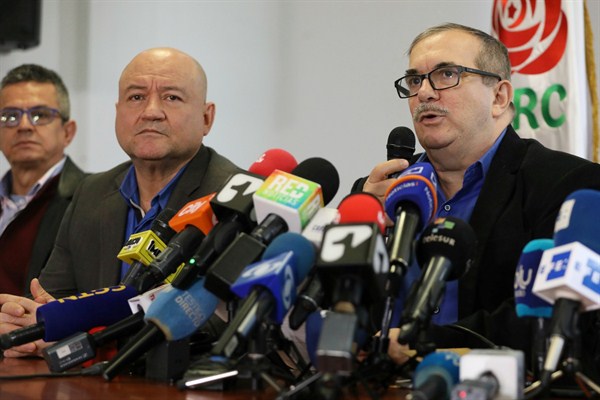A week ago, Colombians faced a sudden, unwelcome reminder of the bad old days. In a video message that spread rapidly throughout the country, well-known former guerrilla leaders announced their rejection of the 2016 peace agreement between the state and the Revolutionary Armed Forces of Colombia, known as the FARC. The men, dressed in the olive-green fatigues they had worn for decades waging a self-proclaimed Marxist revolution, blamed the government, which they accused of betraying them and the deal they reached in Havana three years ago. That hard-fought peace accord, the result of four years of negotiations, had won then-Colombian President Juan Manuel Santos international acclaim, including the Nobel Peace Prize.
But as Santos revealed a few days after the rebels’ video was released, there may be more—or less, really—to the explanation of their decision to take up arms again.
The peace deal has always been controversial in Colombia. It was first narrowly rejected by Colombian voters in a popular referendum and later enacted by Santos after minor changes and with approval by Congress. Santos’ successor, President Ivan Duque, a critic of the agreement, has come under withering attack from backers of the peace process for slow rolling its implementation. So, when the group of former FARC leaders declared a “new chapter” in their armed struggle, and pinned it on the government’s failure to implement the peace deal, both sides claimed vindication.

